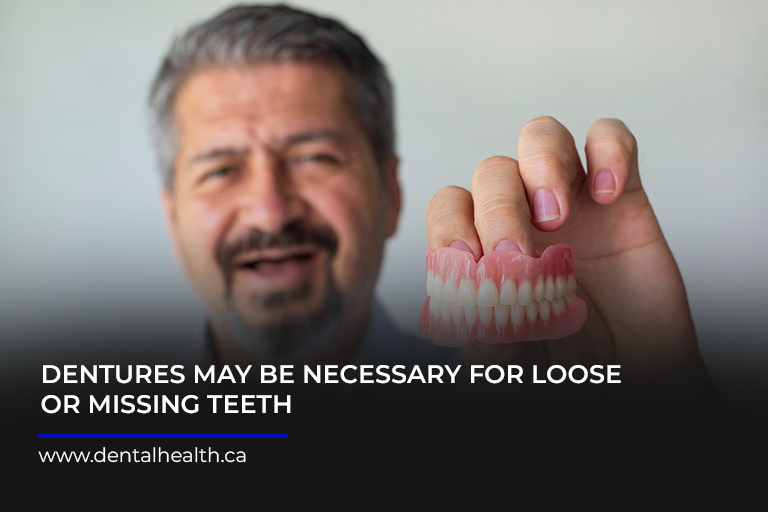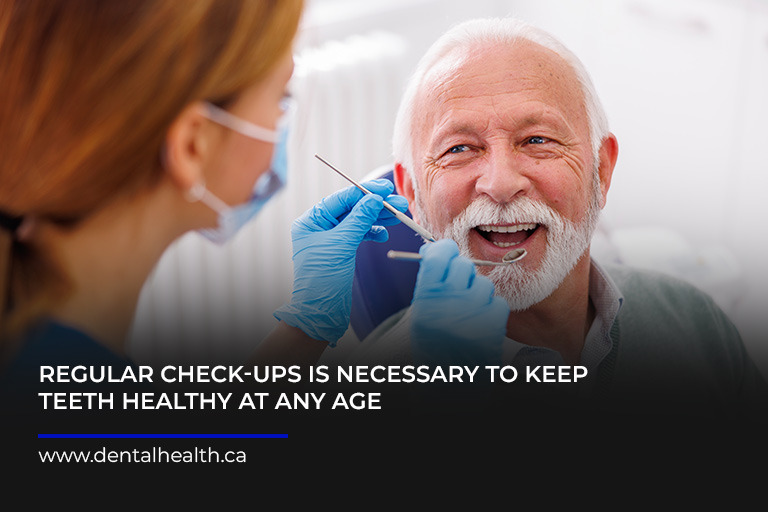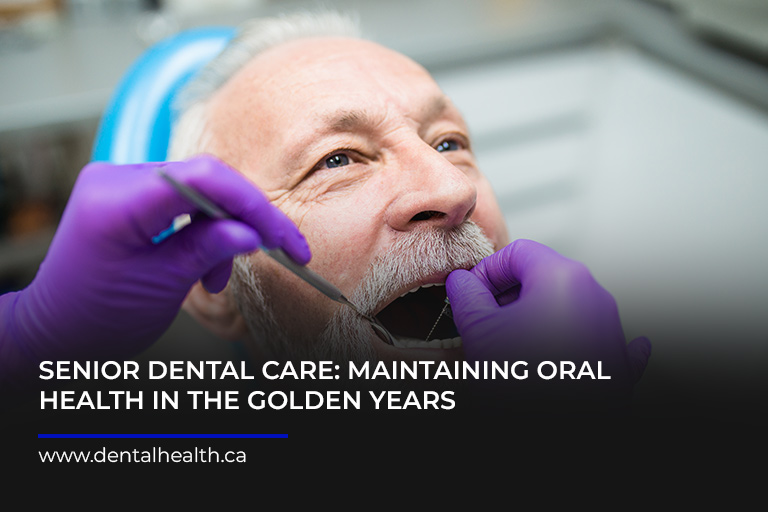A healthy smile is an asset at any age, and for seniors, maintaining good oral health is crucial for overall well-being and quality of life. While some changes in oral health are a natural part of ageing, proactive dental care plays a vital role in preserving a confident smile and enjoying a healthy lifestyle.
The Connection Between Oral Health and Overall Well-being
Research has shown strong links between oral health and various systemic conditions, including cardiovascular disease, diabetes, and respiratory problems. Gum disease, for instance, has been associated with an increased risk of heart disease. The mouth is often considered a “gateway” to the body, as bacteria and inflammation in the oral cavity can enter the bloodstream and travel to other organs.
By prioritizing oral care, seniors can potentially reduce their risk of developing these conditions or managing them more effectively if they are already present. Moreover, good oral health enables seniors to enjoy their favourite foods, communicate effectively, and maintain their social interactions, all of which contribute to a fulfilling life.
Common Dental Concerns in Aging
As we age, our oral health faces unique challenges. Understanding these concerns is the first step towards effective prevention and treatment.
- Dry mouth (xerostomia): Decreased saliva production can irritate, make swallowing more difficult, and raise the risk of dental decay. Medications, certain medical conditions, and radiation therapy can contribute to dry mouth.
- Gum disease (periodontal disease): A common issue among seniors, gum disease can lead to tooth loss and other health complications if left untreated. Risk factors include poor oral hygiene, smoking, and certain chronic diseases.
- Tooth decay and cavities: Changes in enamel and receding gums make teeth more susceptible to decay. Seniors may also have difficulty brushing and flossing effectively due to arthritis or other physical limitations.
- Root decay: As gums recede, the roots of teeth become exposed and vulnerable to decay. Root decay can progress quickly and is often more difficult to treat than decay on the crown of the tooth.
- Tooth sensitivity: Thinning enamel and exposed dentin can lead to increased sensitivity to hot, cold, or sweet foods and drinks. This can make eating and drinking less enjoyable.
- Tooth loss: This can affect chewing ability, speech, and self-esteem. Missing teeth can also lead to changes in bite and jaw alignment.
- Oral cancer: The risk of oral cancer increases with age, making regular screenings essential. Early detection significantly improves the chances of successful treatment.
- Denture problems: Ill-fitting dentures can cause sores, infections, and difficulty eating. Regular adjustments and proper denture care are crucial.
- Darkened or discoloured teeth: Years of wear and tear can affect the colour of teeth. Certain medications and foods can also contribute to staining.
- Diminished taste and smell: These senses can decline with age, impacting enjoyment of food and overall nutrition. This can lead to a decreased appetite and potential nutritional deficiencies.
When to See the Dentist for Seniors

Regular dental visits are important for maintaining oral health as you age. Here are some signs that you should schedule an appointment:
- Mouth pain or discomfort: Any persistent pain in your teeth, gums, or jaw could indicate underlying problems such as tooth decay, gum disease, or infections. Don’t ignore oral pain, as it can worsen over time and lead to more serious complications.
- Bleeding or swollen gums: These could be signs of gum disease (periodontal disease), which can progress and lead to tooth loss and other health problems if not addressed promptly. Early intervention is key to managing gum disease effectively.
- Loose or broken teeth: These can affect your ability to chew, speak, and smile. A dentist can assess the cause, whether it’s due to injury, decay, or gum disease, and recommend appropriate solutions such as fillings, crowns, or bridges.
- Changes in taste or smell: While some changes are normal with age, persistent alterations could be linked to oral health conditions or medications. Consult your dentist for evaluation and to rule out any underlying dental or medical issues.
- Difficulty chewing or swallowing: If you’re having trouble chewing or swallowing food, it could be due to dental problems like missing teeth, ill-fitting dentures, or oral sores. A dentist can help identify the cause and suggest appropriate treatment options.
Essential Senior Dental Care Practices

Adopting a consistent oral care routine and seeking professional dental care are essential for maintaining a healthy smile in your golden years.
- Regular dental check-ups and cleanings: The Canadian Dental Association recommends that seniors visit their dentist for a check-up and cleaning at least once a year, or more frequently if recommended by their dentist. These visits allow for early detection of any dental issues and professional cleaning to remove tartar and plaque.
- Brush and floss daily: Use a soft-bristled toothbrush and fluoride toothpaste to brush your teeth twice a day and floss at least once a day to remove food particles and plaque. If you have difficulty flossing, consider using interdental brushes or a water flosser.
- Stay hydrated: Drink plenty of water throughout the day to combat dry mouth and promote saliva production. You can also try sugar-free candies or gum to stimulate saliva flow.
- Choose a healthy diet: Limit sugary snacks and drinks and opt for nutrient-rich foods that promote oral and overall health. Calcium-rich foods like dairy products and leafy greens are essential for strong teeth and bones.
- Consider dental sealants or fluoride treatments: These can help protect teeth from decay, especially if you are prone to dry mouth or have receding gums. Sealants are thin coatings applied to the chewing surfaces of teeth, while fluoride strengthens enamel and makes it more resistant to acid attacks.
- Manage chronic health conditions: If you have conditions like diabetes or heart disease, work with your healthcare provider to manage them effectively, as they can impact your oral health. Poorly controlled diabetes, for example, can increase the risk of gum disease.
- Don’t smoke or use tobacco products: These habits significantly increase the risk of gum disease, tooth loss, and oral cancer. If you need help quitting, talk to your doctor about cessation programs and resources.
As we journey through life, our oral health remains a vital component of our well-being. By understanding the common dental concerns that can arise with age and adopting a proactive approach to dental care, seniors can enjoy a healthy and confident smile for years to come.
If you’re seeking comprehensive dental care tailored to your specific needs, don’t hesitate to contact Kingsway Family Dentistry at (905) 563-4001 to schedule an appointment and take the first step towards optimal oral health in your golden years. Remember, it’s never too late to prioritize your oral health and enjoy the benefits of a healthy smile.

